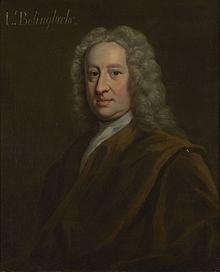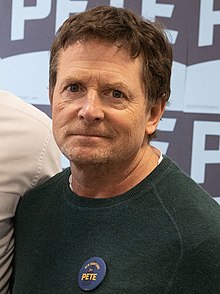Portal:Canada
| Showcase | Contents | Contributing |
Introduction
Canada is a country in North America. Its ten provinces and three territories extend from the Atlantic Ocean to the Pacific Ocean and northward into the Arctic Ocean, making it the world's second-largest country by total area, with the world's longest coastline. Its border with the United States is the world's longest international land border. The country is characterized by a wide range of both meteorologic and geological regions. With a population of just over 41 million people, it has widely varying population densities, with the majority residing in urban areas and large areas of the country being sparsely populated. Canada's capital is Ottawa and its three largest metropolitan areas are Toronto, Montreal, and Vancouver.
Canada is a parliamentary democracy and a constitutional monarchy in the Westminster tradition. The country's head of government is the prime minister, who holds office by virtue of their ability to command the confidence of the elected House of Commons and is appointed by the governor general, representing the monarch of Canada, the ceremonial head of state. The country is a Commonwealth realm and is officially bilingual (English and French) in the federal jurisdiction. It is very highly ranked in international measurements of government transparency, quality of life, economic competitiveness, innovation, education and human rights. It is one of the world's most ethnically diverse and multicultural nations, the product of large-scale immigration. Canada's long and complex relationship with the United States has had a significant impact on its history, economy, and culture.
A developed country, Canada has a high nominal per capita income globally and its advanced economy ranks among the largest in the world by nominal GDP, relying chiefly upon its abundant natural resources and well-developed international trade networks. Recognized as a middle power, Canada's strong support for multilateralism and internationalism has been closely related to its foreign relations policies of peacekeeping and aid for developing countries. Canada is part of multiple international organizations and forums. (Full article...)
Featured article -
The Quebec expedition, or the Walker expedition to Quebec, was a British attempt to attack Quebec in 1711 in Queen Anne's War, the North American theatre of the War of Spanish Succession. It failed when seven transports and one storeship were wrecked and some 850 soldiers drowned in one of the worst naval disasters in British history. (Full article...)
Featured biography -
Michael Andrew Fox OC (born June 9, 1961), known professionally as Michael J. Fox, is a Canadian and American activist and retired actor. Beginning his career as a child actor in the 1970s, he rose to prominence portraying Alex P. Keaton on the NBC sitcom Family Ties (1982–1989) and Marty McFly in the Back to the Future film trilogy (1985–1990). Fox went on to star in films such as Teen Wolf (1985), The Secret of My Success (1987), Casualties of War (1989), Doc Hollywood (1991), and The Frighteners (1996). He returned to television on the ABC sitcom Spin City in the lead role of Mike Flaherty (1996–2000). (Full article...)
Selected panorama -
National symbol -
In Canadian folklore, Mussie is a creature said to live in Muskrat Lake in the Canadian province of Ontario. It is variously described, for example, as a walrus or as a three-eyed Loch Ness Monster-like creature.The legend of Mussie likely began around 1916, though legend claims that Canadian pioneer Samuel de Champlain wrote about it in the early seventeenth century. Mussie has become a part of the local culture and a fixture in the local tourism industry. (Full article...)
Selected vital article -
The music of Canada reflects the diverse influences that have shaped the country. Indigenous Peoples, the Irish, British, and the French have all made unique contributions to the musical heritage of Canada. The music has also subsequently been influenced by American culture because of the proximity between the two countries. Since French explorer Samuel de Champlain arrived in 1605 and established the first permanent French settlements at Port Royal and Québec in 1608, the country has produced its own composers, musicians and ensembles. (Full article...)
Selected picture -
Current events
- November 20, 2024 – November 2024 Northeast Pacific bomb cyclone
- Two people are killed and more than 570,000 people are without power when a bomb cyclone makes landfall over the West Coast of the United States and British Columbia, Canada. (CNN) (NBC News)
- November 15, 2024 –
- The Canadian Union of Postal Workers go on strike after failing to renegotiate their contract with Canada Post. (AP)
- October 25, 2024 –
- A man fatally shoots two of his family members before killing himself in Huntsville, Ontario, Canada. (CTV News Barrie)
- Ontario Premier Doug Ford's government announces that Ontario is planning to ban international students from medical schools in the province beginning in 2026. (Pelham Today)
- October 24, 2024 –
- Four people are killed and one other is seriously injured when a Tesla car crashes into a guardrail and struck a concrete pillar at high speed after losing control causing a fire in Toronto, Canada. (CTV News Toronto)
- October 15, 2024 –
- The Palestinian Prisoner Solidarity Network is designated as a terrorist group by the Canadian government and is sanctioned by the U.S. government, due to the group's alleged ties to the Popular Front for the Liberation of Palestine. (CTV News)
Did you know -

- ... that jazz singer Judi Singh's mother and father were, respectively, among the earliest Black and Sikh settlers of Alberta, Canada?
- ... that Pituamkek National Park Reserve, Canada's newest national park, protects a chain of barrier islands that have been used for fishing and hunting by the Mi'kmaq for 4,000 years?
- ... that Theo Benedet is the first offensive lineman to be named the best Canadian university football lineman two years in a row?
- ... that the Canadian Night Watchman was the first operational radar system in North America?
- ... that a journalists' poll rated Billy Fitzgerald the second-best Canadian lacrosse player of the first half of the 20th century?
- ... that Canadian artist Tom Forrestall spent six months painting his own car?
- ... that the Oxtongue River, historically a canoe route for indigenous people, is still used for recreational canoeing?
Featured list -
The 400-series highways are a network of controlled-access highways in the Canadian province of Ontario, forming a special subset of the provincial highway system. They are analogous to the Interstate Highway System in the United States or the Autoroute system of neighbouring Quebec, and are regulated by the Ministry of Transportation of Ontario (MTO). The 400-series designations were introduced in 1952, although Ontario had been constructing divided highways for two decades prior. Initially, only Highways 400, 401 and 402 were numbered; other designations followed in the subsequent decades. To this day, not all controlled-access highways in Ontario are a part of the 400-series highway network. The network is situated almost entirely in Southern Ontario, although Highway 400 extends into the more remote northern portion of the province. (Full article...)
Main articles
Associated Wikimedia
The following Wikimedia Foundation sister projects provide more on this subject:
-
Commons
Free media repository -
Wikibooks
Free textbooks and manuals -
Wikidata
Free knowledge base -
Wikinews
Free-content news -
Wikiquote
Collection of quotations -
Wikisource
Free-content library -
Wikiversity
Free learning tools -
Wikivoyage
Free travel guide -
Wiktionary
Dictionary and thesaurus
































